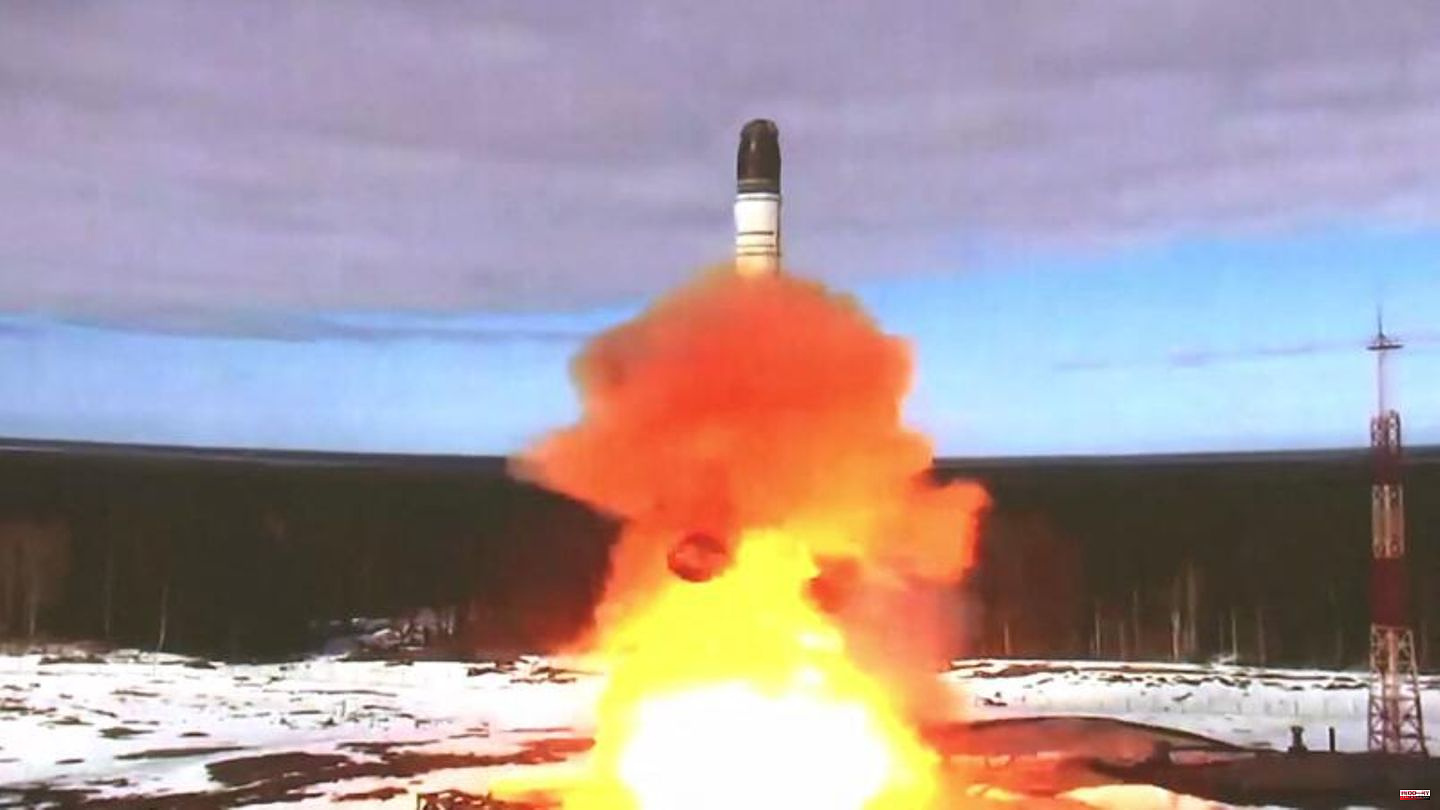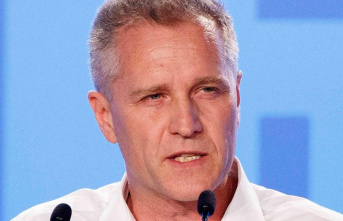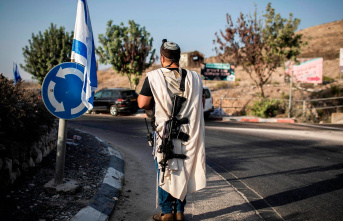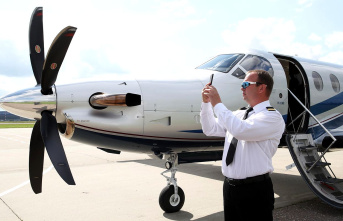A dangerous political ping-pong game has been going on for some time now. First, Vladimir Putin or his former placeholder Dmitry Medvedev threaten to use nuclear weapons. This is legitimate if Russian territory is attacked directly, according to the reasoning. A little later, the answer follows from the USA. US Secretary of State Anthony Blinken and other members of the government never tire of emphasizing in the media that they made it clear to "the Russians" - also in personal conversations - that the use of nuclear weapons would change "everything". and Russia would then have to reckon with the most far-reaching consequences. Finally, both sides always emphasize that they are deadly serious and that they are not bluffing at all.
Against the background of the Ukraine war, the verbal back-and-forth has the potential to take on a life of its own - with possibly fatal consequences. The question of whether or not Vladimir Putin is bluffing with his nuclear threat has occupied Ukraine and its western allies since the Russian president first emphasized: "That's not a bluff!" And it has become even more urgent with the sham referendums in occupied Ukrainian territories. In all likelihood, this week the Duma will declare the regions in which referendums have been held to be Russian territory. And so attacks by the Ukrainian army in these areas would become attacks that, according to the Russian interpretation, would justify the use of nuclear weapons. Medvedev promptly repeated the threat again.
It can't just be brushed aside. Despite the fact that the referendums came about and were carried out in violation of international law, Dmitry Peskov is now insisting on precisely this international law. "The legal situation will change radically from the point of view of international law, and that will also have consequences for security in these areas," said the Kremlin spokesman on Tuesday. In plain language this means: From the Russian point of view, what applies to all of Russia will apply to the annexed areas: A direct attack justifies the use of nuclear weapons. This is somewhat explosive: the Ukrainian President Volodymyr Zelenskyj has of course declared that his country will not recognize the results of the referendums. Nevertheless, he has no illusions about Putin's threats: "Maybe yesterday it was a bluff. Now it could be reality," he said in a CBS interview. "I don't think he's bluffing."
It is therefore not to be expected that the Ukrainian army will avoid the annexed areas in the future. So will Putin react to the expected attacks by the Ukrainians with nuclear weapons? Is that why he is pushing the annexation so quickly to have legitimacy for this step? Lawrence Freedman, Professor Emeritus of War Studies at London's King's College, has a hard time imagining it. "It would be very odd to break the 1945 taboo of nuclear war for such a small gain when the Ukrainians have said they would not stop fighting anyway." In addition, he is certain that the annexed areas could hardly be pacified even after the end of the fighting.
Nevertheless, the better things are going for Ukraine on the battlefield, the higher the chance of a nuclear escalation. That's how Richard K. Betts, professor of war and peace studies at Columbia University, sees it. "Putin is playing with the downfall, and with high stakes," he says. "If I had to put money in, I'd probably bet 3-2 on it not going nuclear, even if he's desperate," he said. "But these are not good chances."
Betts is sure that Putin is desperate. Its "military special operations" have grown into a full-blown war. This has also become clear to the Russian population at the latest with the partial mobilization against which there is a storm in many places and which drives countless young men to flee. After initial successes, the Russian army is in retreat; the resistance of the Ukrainians is obviously unexpectedly large. And the West is also proving to be far more stable than expected. "You can see the pressure he's under," Betts says. "As well as the musings he has in his head about how the use of a small nuclear weapon might serve his purposes, to turn the tide, to frighten the West, and to free himself from the constraints he finds himself in."
Should Putin decide to use nuclear weapons, experts say it is likely that he will use one or more tactical nuclear bombs. These are weapons with an explosive force between 0.3 and 100 kilotons. For comparison, the US's largest strategic warhead has a yield of 1.2 megatons - more than 1,000 times the power - and Russia tested a gigantic 58-megaton bomb in 1961. Tactical bombs are designed for limited effect on the battlefield, unlike strategic nukes that can wipe out entire regions. But even smaller nuclear explosives can be devastating: the atomic bomb that the USA dropped on Hiroshima in 1945 had only 15 kilotons.
However, it is assumed that Putin is not aiming for a devastating effect like in Hiroshima. Rather, Moscow could detonate a tactical nuclear weapon high over Ukraine or over the Black Sea, writes James Cameron of the Oslo Nuclear Project in the Washington Post. A drop in a sparsely populated area or a military facility is also conceivable. The radioactive fallout from a small tactical weapon could be limited to around a kilometer, but the psychological and geopolitical impact would be felt worldwide.
The US government has so far left it open what the far-reaching consequences that the US has announced for such a case would look like. Would they pay back in the same coin? Would they risk a nuclear escalation of the war? The question is still open.
An expert who knows the Russian head of state personally: Angela Merkel, commented on Tuesday whether Putin is serious about his threat. "You should take your words seriously," the former Chancellor tried to broaden the perspective during a speech at the Helmut Kohl Foundation. "Taking words seriously, not dismissing them from the outset as just a bluff, but dealing with them seriously is by no means a sign of weakness or appeasement, but a sign of political cleverness - a cleverness that helps to create room for manoeuvre or, at least as important, even to develop new ones." In the heat of the current conflict, however, there seems to be little room for so much prudence.
Sources: Reuters, DPA, AFP, CBS, Washington Post












